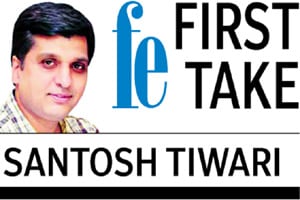 Regulation in these areas is lacking, and independent and effective regulators must be brought in quickly to create a strong deterrence mechanism against fraudulent practices and make India a global services hub.
Regulation in these areas is lacking, and independent and effective regulators must be brought in quickly to create a strong deterrence mechanism against fraudulent practices and make India a global services hub.
There is no doubt that cases like Kingfisher, Sahara, Saradha and Satyam would not have gained such proportions if there had been a diligent auditing and regulatory mechanism in the country.
The irony is, though it has been felt for quite some time that regulation of professionals like chartered accountants, company secretaries and doctors, too, is hugely lacking, nothing much has been done by the government, apart from reacting to the big cases of fraud as and when they came to light.
These professions are currently regulated through bodies like the Institute of Chartered Accountants of India (ICAI), Institute of Company Secretaries of India (ICSI) and the Medical Council of India (MCI).
While the ICAI’s handling of the cases like Satyam has been under question, the fact that MCI has also failed to regulate the medical profession has also been brought out by different studies.
So, the government’s move, as reported by The Financial Express, to overhaul these watchdogs—which also act as the representative bodies of these professional services—by taking away their regulatory powers to remove the conflict of interest that leads to serious problems and minimises the chances of tough oversight, is a step in the right direction.
[related-post]
If the ICAI, ICSI and MCI are focused just on improving the standards in their respective professions and cease to act as regulators—and independent regulators are given charge of the regulatory job in these areas—the much-required stricter oversight on the lines of international best practices could be ensured.
The commerce ministry is now pushing this proposal to improve India’s handling of the services sector and project India as a global service hub by capitalising on the trade facilitation agreement under the WTO.
The biggest advantage of separate regulators for these professions, on the lines of Sebi or the Competition Commission of India, would be that it will plug the possibilities of reluctance or delay in taking action against members of their own professional fraternity.
At present, the main decision-making body of the ICAI, ICSI and MCI are their councils. While the MCI has 100-odd members, the ICAI has 40 members, and the ICSI 15.
Though considering the clout of these bodies, it will not be easy to just limit them to devising standards in their respective professions, it is also a fact that these three areas need independent and effective regulators urgently.
Prime minister Narendra Modi, therefore, will do well by expediting this process as part of the effort to improve the business environment in the country.


